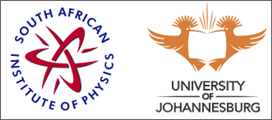Speaker
Would you like to <br> submit a short paper <br> for the Conference <br> Proceedings (Yes / No)?
yes
Main supervisor (name and email)<br>and his / her institution
Prof. F. Petruccione,petruccione@ukzn.ac.za, UKZN Westville capus
Apply to be<br> considered for a student <br> award (Yes / No)?
yes
Abstract content <br> (Max 300 words)<br><a href="http://events.saip.org.za/getFile.py/access?resId=0&materialId=0&confId=34" target="_blank">Formatting &<br>Special chars</a>
Quantum cryptography uses a private key shared between the transmitter and receiver. The transmitter (ALICE) sends a secret key as a series of single photons to the receiver (BOB). The value of the bit depends on the quantum state of each single photon. If an eavesdropper is present in the channel, after the measurement the quantum state of the single photon may change and BOB receives a different key. In order to recognize if an eavesdropper is present in the channel different protocols are used [1]. Quantum key distribution (QKD) can be done in free space using polarization states of single photons. Different experiments have shown the feasibility of QKD in free space for long distances [2]. Quantum cryptography in free space represent a flexible communication method in order to transmit a secret message between two stationary points located on the Earthy surface or for two non-stationary points as well as aircraft, satellite and terrestrial transport. Quantum cryptography is an optical communication system and for that reason it is necessary that the transmitter follows the trajectory of the receiver and the polarization bases of the transmitter and the receiver must be aligned. In this paper a tracking system for polarization alignment is presented. The system uses a polarized laser beacon sent to the transmitter. The laser beacon is polarized according to the polarization bases of the quantum channel. The transmitter measures the laser beacon and aligns its bases with the bases of the receiver.
[1] Bennett C and Brassard G 1984 Quantum cryptography: public key distribution and coin tossing Proc. of IEEE International conference on computer systems and signal processing 175-179
[2] Ursin R 2007, Entanglement-based quantum communication over 144 km, Nature Physics 3, 481 – 486.
Level for award<br> (Hons, MSc, <br> PhD)?
PhD

